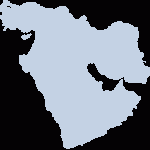Sunday
Feb212010
Middle East Inside Line: West Bank Lands, Israel in China, Dubai Killing
 Sunday, February 21, 2010 at 14:15
Sunday, February 21, 2010 at 14:15  Netanyahu announced on Sunday that the Cave of the Patriarchs in Hebron and Rachel's Tomb in Bethlehem (all in the West Bank) would both be added to the list of national heritage sites that the government plans to promote. He said that the rightist religious party Shas persuaded him add the two sites to the list and added:
Netanyahu announced on Sunday that the Cave of the Patriarchs in Hebron and Rachel's Tomb in Bethlehem (all in the West Bank) would both be added to the list of national heritage sites that the government plans to promote. He said that the rightist religious party Shas persuaded him add the two sites to the list and added:Our existence depends not only on the IDF or our economic resilience - it is anchored in...the national sentiment that we will bestow upon the coming generations and in our ability to justify our connection to the land.
Following an unproductive Russia visit, a high-ranking Israeli delegation is to leave at the end of the month for Beijing. Both officials will not only talk about the increasing financial cooperation between two countries but also the request for sanctions on Tehran. Haaretz underlines that Netanyahu and Foreign Minister Avigdor Lieberman have not visited China and held no significant talks with Chinese officials on the Iranian issue but have always held meetings with the rest of the 5+1 camp (Russia, USA, Germany, UK, France).
Lebanese Prime Minister Saad Hariri blamed Israel on Sunday for seeking to start a war with Iran and Syria, despite the Arab nations' desire for peace. He said: "Israel can't claim to be interested in the peace process without doing anything tangible in this regard."
The U.A.E.'s minister of state for foreign affairs, Anwar Gargash, urged European investigators to launch full-scale probes into how fraudulent passports were used by a hit squad accused of killing Hamas commander Mahmoud al-Mabhouh.
According to the Sunday Times, Prime Minister Benjamin Netanyahu met the hit squad in a Mossad headquarters and in early January authorized the assassination of Hamas commander Mahmoud al-Mabhouh.
tagged  Anwar Gargash,
Anwar Gargash,  Avigdor Lieberman,
Avigdor Lieberman,  Benjamin Netanyahu,
Benjamin Netanyahu,  China,
China,  France,
France,  Germany,
Germany,  Ha'aretz,
Ha'aretz,  Hamas,
Hamas,  Iran,
Iran,  Israel,
Israel,  Israeli Defense Forces,
Israeli Defense Forces,  Mahmoud al-Mabhouh,
Mahmoud al-Mabhouh,  Mossad,
Mossad,  Russia,
Russia,  Saad al-Hariri,
Saad al-Hariri,  Shas,
Shas,  Sunday Times,
Sunday Times,  Syria,
Syria,  United Arab Emirates,
United Arab Emirates,  United Kingdom,
United Kingdom,  United States of America in
United States of America in  Middle East & Iran
Middle East & Iran
 Anwar Gargash,
Anwar Gargash,  Avigdor Lieberman,
Avigdor Lieberman,  Benjamin Netanyahu,
Benjamin Netanyahu,  China,
China,  France,
France,  Germany,
Germany,  Ha'aretz,
Ha'aretz,  Hamas,
Hamas,  Iran,
Iran,  Israel,
Israel,  Israeli Defense Forces,
Israeli Defense Forces,  Mahmoud al-Mabhouh,
Mahmoud al-Mabhouh,  Mossad,
Mossad,  Russia,
Russia,  Saad al-Hariri,
Saad al-Hariri,  Shas,
Shas,  Sunday Times,
Sunday Times,  Syria,
Syria,  United Arab Emirates,
United Arab Emirates,  United Kingdom,
United Kingdom,  United States of America in
United States of America in  Middle East & Iran
Middle East & Iran 




